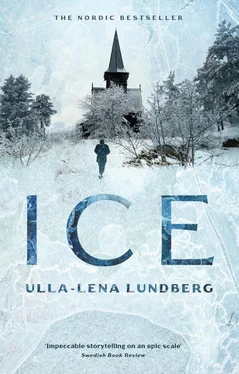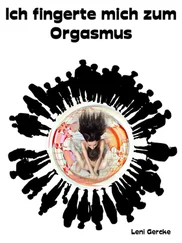“Tomorrow we’ll start saying ‘In the doctor’s days,’ for tomorrow she leaves. Never again will the Örlands have a doctor of our own. It was edifying to witness the touching expressions of gratitude that these fisherfolk extended to her today. There was not a dry eye in the assembly when the chairman of the local council and the local priest expressed everyone’s thanks for her admirable contributions to public health. Now we feel nothing but emptiness when we think of our future without our doctor.”

In the performance of her important duties, Adele Bergman has the support of an iron constitution. Elis, on the other hand, often feels there is something wrong with his heart. So Doctor Gyllen has listened, tapped him on the back, taken his pulse, looked into his eyes, and remarked how nice it is to see a healthy man for once. Now they’re wondering what will happen. As long as Doctor Gyllen was on the Örlands, she held sickness and death in check. Those who died while she was there were the victims either of old age or accidents. A few sad cases of cancer, but otherwise “state of health—good”, as she herself said over the telephone to the provincial health director and which the operator passed along for the edification of all the islanders.
Adele was one of the doctor’s most faithful supporters, and she feels her absence deeply. Nevertheless, she is not entirely unhappy that the Örlands’ most prominent free-thinker has now moved away. It has been a thorn in her side that the doctor, however unintentionally, has given easily influenced young people reason to believe that it is modern and even admirable to turn their backs on church and religion. The priest doesn’t seem to take it that seriously, and when she brings up the doctor’s liberal views, he looks embarrassed and mumbles something about how hard it is to see into the human heart. Even though Doctor Gyllen doesn’t know God, God knows Doctor Gyllen and uses her skills for the benefit of many.
An evasion that doesn’t entirely please Adele Bergman. Hard-boiled in business, burning with Christian zeal, she aspires to complete surrender, a deeper insight into the need for salvation. It is not enough to seek it for your own sake, all Christians should also take responsibility for their brothers and sisters and open their eyes to the Divine light.
Thanks to the new priest, spiritual life on the Örlands is on the upswing. Many now go to church quite often, prayer meetings in the villages are well attended. That’s good. But Adele sees many habitual Christians among the participants, and for them religion is form without content. Where is the heartfelt, personal faith that permeates and transforms the entire life of the true believer?
The priest, from whom she hopes so much, won’t look her in the eye. “I’m wary of the term ‘habitual Christian’,” he says a bit apologetically. “When people come to church, we mustn’t push them away by calling them that. Isn’t habit itself a source of firmness and fortitude in the life of faith? Maybe habit is precisely the thing that sustains people’s personal faith. Where we hold our devotions, the door is open. God is present. We must believe that.”
“But what about personal commitment?” Adele insists. “People are so dreadfully lukewarm. It’s enough for them to go to church once in a while as if they were buying an indulgence. Then it’s back to normal. Egoism, personal advantage, cold calculation. How are we supposed to open their hearts?”
If Adele didn’t know what a good Christian he was, she could swear he was embarrassed. “I ask myself that same question when I write my sermons. What do we know about the hearts of our neighbours? Open to scripture but at the same time open to temptation and pressure and even to direct exploitation. We see that in many sects.”
“Your fear of sectarianism is really very High Church! I’m talking about the need for revival, the spiritual winds that should not blow only at Pentecost!”
“You are so right. But I’m uncertain. Revival divides a community. Most of all, I just don’t think I’m up to leading a revival. How do you do it?” He smiles disarmingly, but of course he could if he wanted to! His reluctance is a barrier, as is the way he takes refuge in all his administrative duties and the work on his farm. He is getting to be more and more like other Evangelical Lutheran priests, who divide their duties into segments—preaching, parish work, administrative duties, farming. Forgetting that their entire lives must be a lesson from scripture. The smallest activity must be a sermon about God’s goodness to those who give themselves without reservation! That’s what priests should be, like medieval monks whose only duty was to love God and their fellow men.
Petter’s ideal is absolute truthfulness, yet there is something about Adele that makes him less communicative, makes him weigh his words. It seems to him suddenly that there’s no point in saying certain important things. For example, that when he looks into the beloved faces of the Örlanders, what he most wishes for them is not revival’s constant self-examination. He’s more inclined to wish them the freedom of a Christian soul. The freedom to be unharassed, untormented, untroubled. Happy, if that is possible more than momentarily. Life is full of worry and want and sickness and sorrow; he would so very much like to spare them eternal damnation.
If God is love, he loves the Örlanders, with their foxy ways, their wolfish grins and their cloven hooves, their sheep’s clothing and their borrowed feathers, their rabbit paws and tiger hearts. Rapid shifts and dodges, all of God’s spirited creation embodied in them in sparks and flashes. Snouts and paws, fur and scales, whistles and calls. An auk, an eider duck, a wagtail, a snipe. A wing brushing the brow, the round head of a seal breaking the surface. A smile spreading over all of it, quickly gone, rapidly returning. Beyond categorizing and moralizing, the priest sometimes thinks.
The priest struggles with a strong sense of sin and is diligent about self-examination. Is this actually something he wishes on others? He doesn’t want a return to church discipline and refuses to be a religious policeman, with God on his tongue as he condemns. No killjoy, which he has been for himself often enough. But rather a guide towards true joy in Christ, not deflated by anxiety and fear of discovery, derision, and punishment. A road you travel in daylight, with a burden no greater than you can bear.
The Örlanders are as social as herring and combine in different, shifting communities, most eagerly in their families and villages. Instigating a religious revival that bursts those bonds is not for Petter. “No,” he has to say to Adele, spelling it out. “I’m not the man to lead a revival. As best I can, I will preach the Word, which redeems and liberates. Guide, not compel. Example rather than decree.”
“If only it were that easy!” says Adele. “People are simply too stiff-necked. Contrary and hardened. They wear smooth, happy faces, but oh my.”
“Yes,” Petter says. Simply. For of course she’s right. Deadly sins cut a wide swath through the villages, virtues are shadowy figures of derision. But they are rampant among people who also have a capacity for sympathy and compassion, trust and goodwill. They can’t live without other people, and therefore they are attentive to society’s rules, which mustn’t be violated. A light side and a dark side, open as a book, full of secrets. Smiling, turning away. Benevolent, malicious. Never only the one or the other.
When you get right down to it, he thinks, the Örlanders have opened the path to Christian fellowship for him much more effectively than he could have done it for himself. The Örlanders have freed him from constant introspection, which is a form of egocentricity—as if everyone kept a constant eye on him. Maybe that’s what people do on the Örlands, but in that case it’s a happy and indulgent eye, more forgiving than the devastating gaze he used to fix on himself. He speaks better when he’s not looking at himself so grimly, and he thrives on the fellowship that the congregation so generously offers him.
Читать дальше













